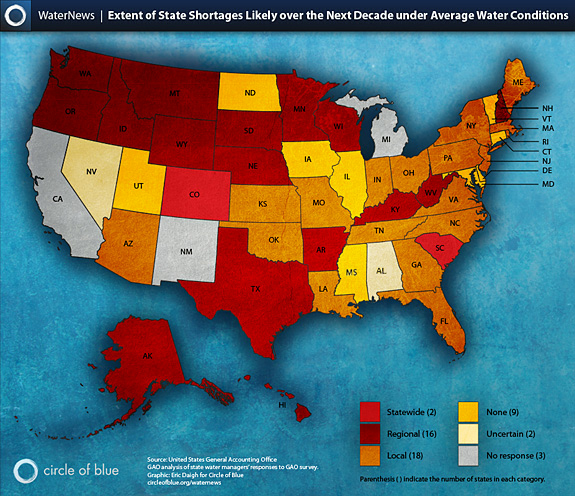The Stream, August 21: Microbes in Drinking Water Provide New Insights
Drinking Water Bacteria
A University of Michigan study showed that bacteria found in drinking water can be traced to treatment filters instead of the original aquifers or rivers. The researchers, who studied Ann Arbor, Michigan’s tap water, said their findings could lead to more natural, sustainable water treatment processes and assist engineers in controlling microbes in drinking water to benefit human health, PhysOrg Science News reported.
Meanwhile, researchers at the Oregon State University have found a way to harness the electricity-generating power of microbes to devise a microbial fuel cell that produces electricity as it treats wastewater, according to Forbes.
Water Management and Prices
The world needs to establish a system to keep track of water management in order to ensure food and water security, according to Joakim Harlin, senior water resources advisor for the United Nations Development Programme. Such a plan will be up for discussion at Stockholm World Water Week, AlertNet reported.
The UN’s weather agency, the World Meteorological Organization (WMO), is also advocating for water conservation through a drought management plan. The WMO says such a plan would create policy that acknowledges drought risk rather than crisis response, according to The Associated Press.
A Chilean senator has suggested the nationalization of the country’s water amidst drought, explaining that economic groups’ right to water should not take precedence over the farmers who lack the basic resource to sustain their crops and livestock, Prensa Latina reported.
HSBC has released a report stating that although commodity prices are rising due to U.S. drought conditions, the failure of wage earners to push back has prompted central banks to keep interests rates at the status quo, rather than reacting to inflation, according to The Guardian.
Arctic
Only five weeks remain of the annual Arctic sea ice melt season, but annual levels are already the fourth lowest since measurements began. Some scientists find this directly indicative of global warming, and some describe a feedback loop that occurs when dark ocean waters absorb heat rather than reflecting it as ice would, Bloomberg reported.
Asia
Typhoon Kai-Tak killed dozens and displaced hundreds of thousands in Southeast Asia early this weekend, ruining thousands of hectares of crops and causing millions of dollars in damage, according to Xinhua.
The Stream is a daily digest spotting global water trends. To get more water news, follow Circle of Blue on Twitter and sign up for our newsletter.
is an editorial intern for Circle of Blue. She studies journalism as an undergraduate at Northwestern University’s Medill School of Journalism, Media, Integrated Marketing Communications.






Leave a Reply
Want to join the discussion?Feel free to contribute!